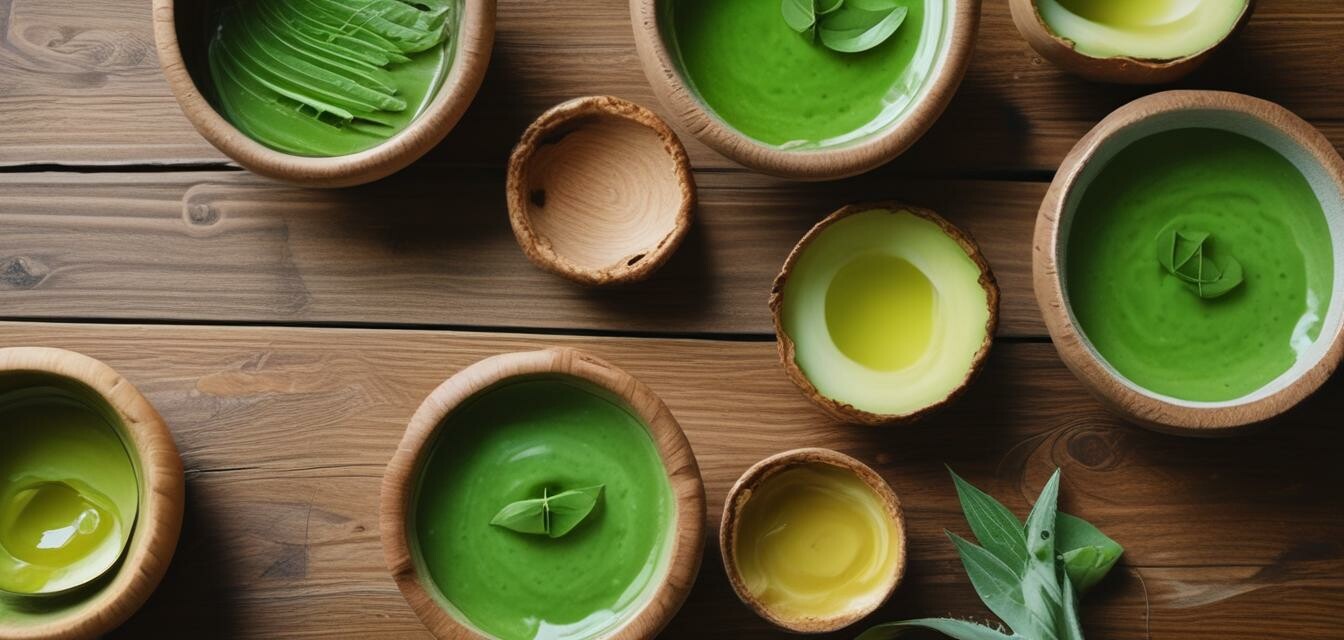
How to Choose Organic Face Masks for Your Skin Type
Key Takeaways
- Identify your skin type: dry, oily, combination, or sensitive.
- Choose organic ingredients suited for your skin concerns.
- Check labels for certifications and avoid harmful additives.
- Consider the texture and application method of the mask.
- Patch test any new product before full use.
When it comes to enhancing your skincare routine, face masks can play a crucial role. Organic face masks are a popular choice for those looking to treat different skin types and concerns with natural ingredients. However, choosing the right mask can be overwhelming with so many options available. In this guide, we will discuss how to select the perfect organic face masks based on your skin type and concerns.
Understanding Your Skin Type
Before diving into the world of organic face masks, it's vital to understand your skin type. This foundation will help you choose products that effectively address your specific needs. Below is a breakdown of the common skin types:
| Skin Type | Characteristics | Ideal Organic Ingredients |
|---|---|---|
| Dry | Flaky, rough texture; tight feeling; may show signs of aging. | Shea butter, honey, avocado oil |
| Oily | Shiny appearance; enlarged pores; prone to breakouts. | Clay, charcoal, tea tree oil |
| Combination | Dry in some areas (usually cheeks) and oily in others (forehead, nose). | Aloe vera, jojoba oil, cucumber extract |
| Sensitive | Redness; burning; itchiness; often reacts to new products. | Chamomile, calendula, almond oil |
Choosing the Right Organic Ingredients
Once you know your skin type, the next step is selecting the right ingredients. Organic face masks can help nourish your skin without exposing it to harsh chemicals. Here are key ingredients to look for based on different skin issues:
1. Hydration for Dry Skin
- Shea butter: Deeply moisturizes and nourishes the skin.
- Honey: Acts as a natural humectant to retain moisture.
- Aloe vera: Soothes and hydrates the skin effectively.
2. Oil Control for Oily Skin
- Charcoal: Draws out impurities and excess oil.
- Clay (Bentonite or Kaolin): Absorbs oil and toxins from the skin.
- Tea tree oil: Known for its antibacterial properties, helps reduce breakouts.
3. Balance for Combination Skin
- Jojoba oil: Mimics the skin's natural oils.
- Cucumber extract: Hydrates while cooling and soothing.
- Aloe vera: Rejuvenates and balances skin moisture.
4. Soothing for Sensitive Skin
- Chamomile: Calms irritation and redness.
- Calendula: Known for its healing properties.
- Almond oil: Provides gentle nourishment without irritation.
Evaluating Product Labels
Always check product labels for certifications and ingredient lists. Look for organic and cruelty-free certifications, which assure you of the product's quality and ethical production. Remember, the shorter the ingredient list, the better it is for your skin. Avoid products with added synthetic fragrances and harsh preservatives.
Patch Testing New Masks
Even with organic products, it’s wise to perform a patch test, especially for sensitive skin. Apply a small amount of the mask on your inner arm and wait for 24 hours to see if any irritation occurs. If all goes well, you're ready to treat your face!
Texture and Application Methods
The texture of a face mask can greatly influence your experience. Here are some common types:
| Type | Description | Best For |
|---|---|---|
| Cream | Thick and moisturizing, ideal for dry skin. | Dry and normal skin types. |
| Clay | Thick paste that dries, good for oily skin. | Oily and combination skin types. |
| Sheet | Pre-cut mask soaked in serum. | All skin types for quick treatments. |
| Gel | Light, cooling texture. | Sensitive and dehydrated skin. |
Conclusion
Choosing the right organic face mask requires understanding your unique skin type and concerns. By selecting masks with ingredients that work best for you, checking labels for quality, and embracing a patch-testing routine, you can enhance your skincare ritual effectively. Explore more about organic skincare in our other buying guides to make well-informed choices.
Pros
- Natural ingredients that nourish the skin.
- Less likelihood of skin irritation.
- Variety of options for specific skin concerns.
Cons
- Some may be less effective than synthetic alternatives.
- Higher cost for organic products.
- Shorter shelf life due to lack of preservatives.
For further reading on skincare essentials, explore our facial cleansers and moisturizers & serums sections for additional tips and product insights.


